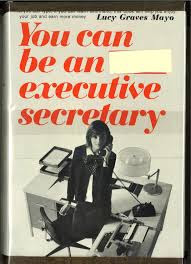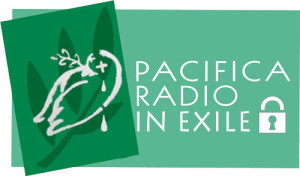Originally posted August 3, 2014
Berkeley- At the Pacifica National Board’s July 31st meeting, noticed by chair Wilkinson as a “special meeting” due to “urgent business” and “a report being prepared by CFO Salvador”, the rogue board majority pushed through a massive change in the executive director job description. The rewrite by board member Lydia Brazon, who has been a fixture in Pacifica’s dysfunctional personnel processes for the last 15 years, claimed to prioritize fundraising, but actually removed supervisory authority over the CFO and all accounting and financial staff from the executive director. The old and new job descriptions can be found here and here.
.jpg)
This situation, which had been in effect in the mid-2000’s with complaints from Greg Guma (who wrote about it in his Maverick Media blog) and louder complaints from successor Nicole Sawaya, the heroine of the 1999 Pacifica uprising. Sawaya, who quit the ED position twice in 8 months in 2008, demanded the board allow her to manage the financial operations of Pacifica. Her lack of success set the path for Pacifica’s financial meltdown which began shortly after she left and was replaced by Dan Siegel in late 2008. By 2009, the board repaired the defective structure and fired CFO Hicks, but Hicks claimed racial discrimination and due to Siegel’s testimony that Hicks was fired because he was black, had to pay Hicks a large settlement.
The revised job description is unlikely to appeal to experienced executives, who generally expect to have operational supervision. Brazon also reduced the salary range to below Pacifica’s offers on the CFO position. Pacifica has had 4 executive directors in the past 5 months.
Members objecting to the board majority’s chaotic actions over the past six months, which will lead to the network’s dissolution, can sign a petition here.
A pending complaint to the CA Attorney General Registry of Charitable Trusts can be found here (in a slightly updated version). Pacifica members concerned about the direction of the network can send a note to the AG here.
The fired/rehired CFO missed a second deadline to produce financial statements and initiate the annual audit, (the first announcement was for the end of June), provided a 3rd deadline for financial statements (now August 8th) and an audit start date of “as soon as we can”. Patchy and erroneous draft statements released to the finance committee in late July can be found here. Among other issues, they omit affiliate fee payments, contain no revenue reporting from KPFK for the last 5 months, no event income reporting from WBAI, no payroll data for the last five months, and contradict local financial statements from Berkeley. Salvador and PNB treasurer Brian Edwards-Tiekert issued a report blaming the previous executive director for the reporting inadequacies, although financial statements produced prior to Reese’s firing and Salvador’s rehire were far more complete. (See FY 2013 and FY 2014-1st quarter (missing only KPFA’s data).
Audit committee chair Fred Blair spoke with Pacifica’s auditing firm, Armanino LLC and confirmed that the audit still has no starting date. Blair also announced that Pacifica still owed Armanino $33,000.
The fired-and-then-rehired-34-
Wilkinson announced the intention to hire a program director at Berkeley station KPFA, which has been without one since 2011 and for 11 of the last 14 years. The hiring decision will take the Berkeley station’s annual payroll and benefits close to the $2 milion dollars a year mark, when the station is facing the loss of CPB funding. KPFA’s fund drive revenue is $2.6 – $2.7 million dollars annually. Pressing network needs for replacement transmitters in New York and Houston, as well as two lawsuits from creditors (Robert Half International and Free Speech Radio News/Pacifica Reporters Against Censorship) remain unresolved.
Music royalty payment protection plan agreements sponsored by the Corporation for Public Broadcasting will expire in 2015, and the five Pacifica stations will have to pay digital music rights for every Internet stream containing 30 seconds or more of copyrighted music, by song and by each individual listener, if unable to restore CPB funding. The sound of Don Maclean’s song American Pie (The Day The Music Died) was heard briefly in the background of the long board meeting call last Thursday night.
(8).jpg) The board majority continues to delay the election postponed from 2013. Plans to convert to an online voting system to save $50,000 in printing and postage costs cannot be implemented until the board appoints someone to do the job. Former PNB vice-chair Bill Crosier applied for the job months ago and issued detailed plans for how to proceed. Pacifica is likely to experience governance collapse by the end of the year, as several stations no longer have “runner-up” delegates left and would by default resort to self-perpetuating boards, ending the democratic experiment that began in 2002=3, after rumors of station sales in July of 1999. Chair/IED/IED Wilkinson would enter her second consecutive unelected year, her term having expired in December 2013, 1 month before Wilkinson declared herself chair of the board and 3 months before inserting herself as the executive director.
The board majority continues to delay the election postponed from 2013. Plans to convert to an online voting system to save $50,000 in printing and postage costs cannot be implemented until the board appoints someone to do the job. Former PNB vice-chair Bill Crosier applied for the job months ago and issued detailed plans for how to proceed. Pacifica is likely to experience governance collapse by the end of the year, as several stations no longer have “runner-up” delegates left and would by default resort to self-perpetuating boards, ending the democratic experiment that began in 2002=3, after rumors of station sales in July of 1999. Chair/IED/IED Wilkinson would enter her second consecutive unelected year, her term having expired in December 2013, 1 month before Wilkinson declared herself chair of the board and 3 months before inserting herself as the executive director.
In Berkeley, concerns have been widely expressed about the wipeout of AM local public affairs programs by citizen journalists and activists focused on labor, alternative media, and environmental justice. Chevron’s recent refinery expansion in economically challenged Richmond was a particularly potent local example as it had been extensively covered on the Morning Mix programs. Morning Mix host Andres Soto, one of the leading opponents of the refinery expansion deal, spoke at the SF Labor Council about the Morning Mix program. In what is hopefully a coincidence, a copy of a $105,000 check from Chevron was found in KPFA’s copier dated a month before the Morming Mix got pulled out of primetime.
At the board meeting, some board members asked whether Pacifica Radio “owned” Uprising, the daily syndicated program out of Los Angeles hosted by Sonali Kolhatkar that recently replaced the Morning Mix, and is beginning syndication on Free Speech Television. The surprising answer from IED Wilkinson and CFO Salvador was “I dunno”.
Berkeley-based satirical sound collage Twit-Wit Radio, a 3-minute collaborative spoken word collage produced by noted theatrical director George Coates, continued to spoof the board-induced craziness on July 27th, with snippets of audio drawn from Pacifica’s actual board meetings.
###
Started in 1946 by conscientious objector Lew Hill, Pacifica’s storied history includes impounded program tapes for a 1954 on-air discussion of marijuana, broadcasting the Seymour Hersh revelations of the My Lai massacre, bombings by the Ku Klux Klan, going to jail rather than turning over the Patty Hearst tapes to the FBI, and Supreme Court cases including the 1984 decision that noncommercial broadcasters have the constitutional right to editorialize, and the Seven Dirty Words ruling following George Carlin’s incendiary performances on WBAI. Pacifica Foundation Radio operates noncommercial radio stations in New York, Washington, Houston, Los Angeles, and the San Francisco Bay Area, and syndicates content to over 180 affiliates. It invented listener-supported radio.


